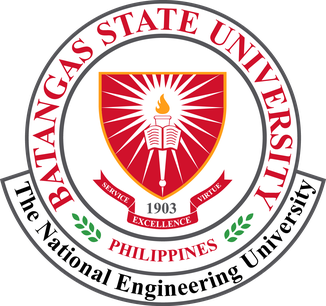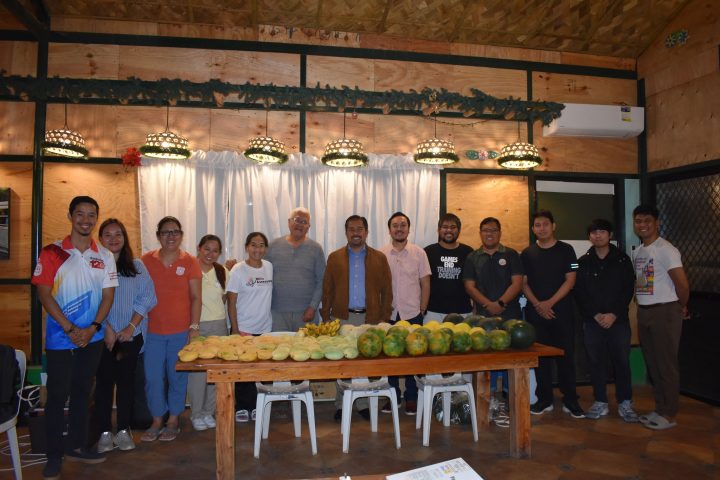This study investigates the application of PID algorithm-based temperature control systems in pig house environmental management and its impact on agricultural production efficiency. Through field experiments conducted at Dongshun Aquaculture Ecological Development Co., Ltd. in Nanping City, Fujian Province, we evaluated the system’s effectiveness in energy efficiency, production performance, and animal health. Results show that...
Tag: 12
Pioneering longevity with purpose and joy, advancing Sustainable Development Goals (SDGs)
The Blue Zone Summit 2024 took place on January 20 at Paraiso Village Farm, Sabang, San Jose, Batangas. The event celebrated senior citizens’ longevity and aimed to establish Paraiso as the first BLUE ZONE FARM in the Philippines. In collaboration with Batangas State University – The National Engineering University and the Local Government Unit of...
Assessing the Compliance of a Coastal Municipality to the Ecological Solid Waste Management Act of 2000 (RA 9003)
To bring about a significant change in the SWM situation in the Philippines, the Ecological Solid Waste Management Act of 2000 (RA 9003) was enacted to provide local government units with frameworks that would help them solve the looming garbage problem in the country. Despite the presence of the decree, managing wastes remains a problem...
Current construction and demolition waste management strategies for Philippine construction sector – A systematic literature review
The construction industry continues to be one of the primary drivers of a country’s economic progress. As of 2022, the Philippines’ construction sector had an annual growth rate of 9.2% and continues to increase due to the Build! Build! Build! (BBB) program. However, the construction sector is globally known for regularly consuming more raw materials,...
A Comparative Analysis of Convolutional Neural Network Architectures for Coffee Leaf Rust Detection
Coffee plays a cultural part in the lives of people. Eight out of ten adults in the Philippines drink an average of 2.5 cups of coffee per day, and nine out of ten households have coffee in their pantries. In 2021, it is reported that coffee will be an approximately PHP 3.0 billion (USD 5...
Gas Sensor-Based Nondestructive Testing for Jackfruit Ripeness Level
Jackfruit is a fruit native to South and Southeast Asia that is now cultivated all over the world due to its adaptability, as it can be eaten both ripe and unripe. This study was conducted to accurately identify the Jackfruit’s ripeness. Four MQ families have been identified as the most effective for classifying the ripeness...
Hydroponic System for Effective Microplastic Filtration in the Sea: A Revolutionary Low-Cost Method
The Low-Cost Microplastic Filtration System is a device designed to aid in the resolution of the growing problem with microplastics. With an estimated 48 million shopping bags and 164 million sachets used daily (Philippine research uncovers microplastics inside a regularly eaten fish, 2020), the Philippines is one of the most prolific users of single-use plastics....
Improving Rice Farming Productivity through Solar-Powered Electronic Stirring with SMS Notifications
This research project aims to address the challenges farmers face in drying paddy rice to produce high-quality paddy grain due to a lack of manpower. The study presents an Electronic Stirring Rice Paddy system with SMS Notification and Solar Charging that stirs the rice every thirty minutes until it is dried, with features that notify...
Drying Characteristics of Herbs, Spices, and Medicinal Plants
The acceptability of food is significantly increased by the addition of herbs, spices, and medicinal plants. These biomaterials improve the shelf-life of food, delay its oxidation, and impart health-promoting properties as natural therapies. The physical and chemical properties of aromatic and medicinal plants are determined by their moisture content since water is the most significant...
Technology Adoption and Usage Behaviors in Field Incident Management System Utilization
This study utilized the Unified Theory of Acceptance and Use of Technology (UTAUT) model to analyze the adoption and utilization of field incident management system (IMS) in a manufacturing organization. The study specifically focused on the role of behavior as a key factor in the adoption and utilization of incident management system. Data was collected...





